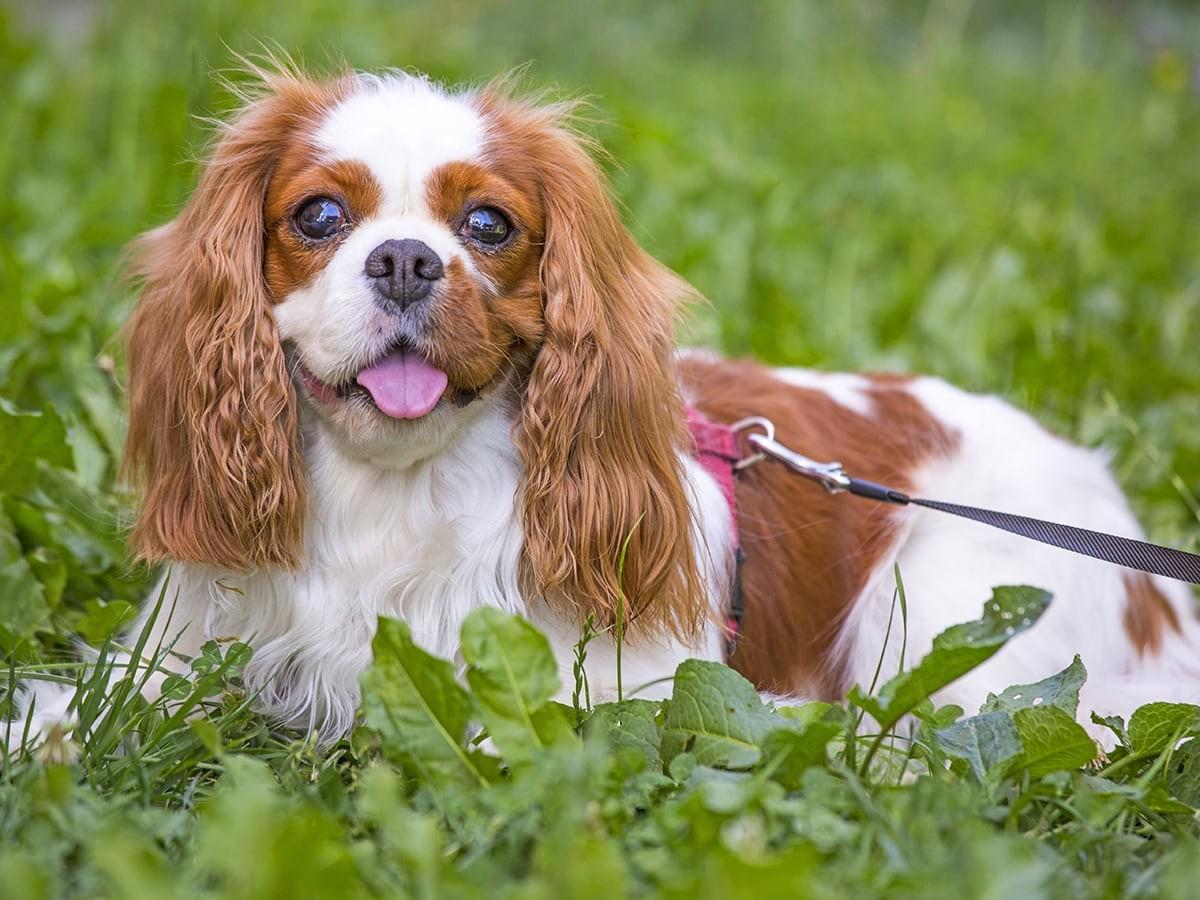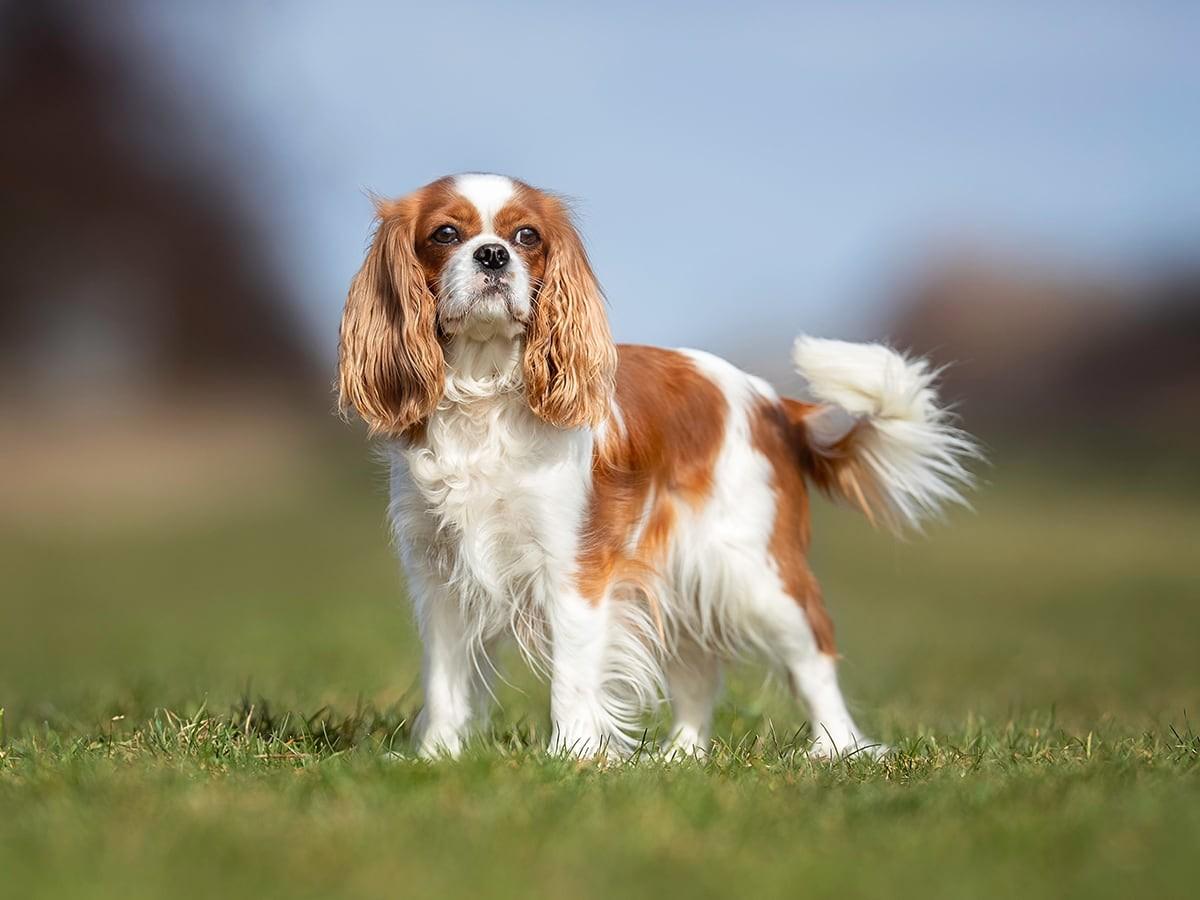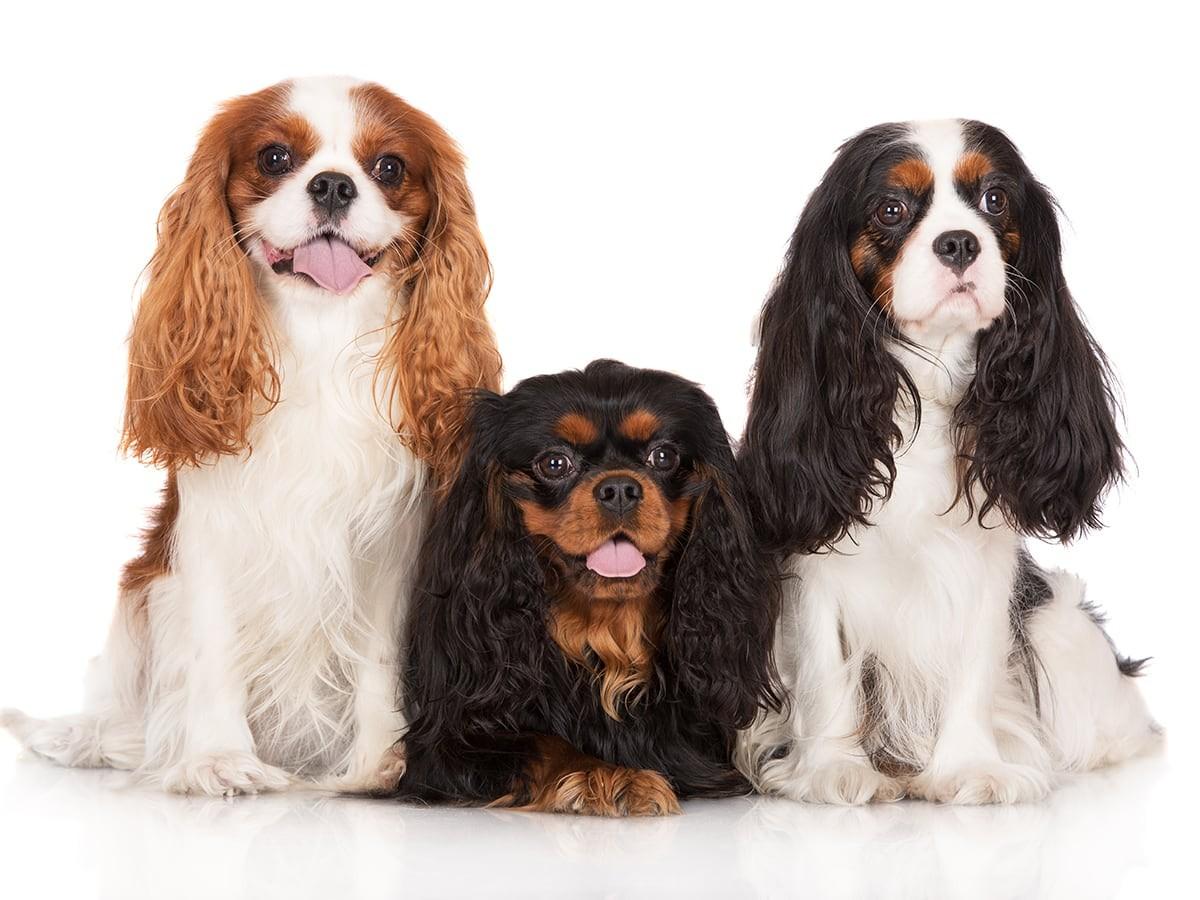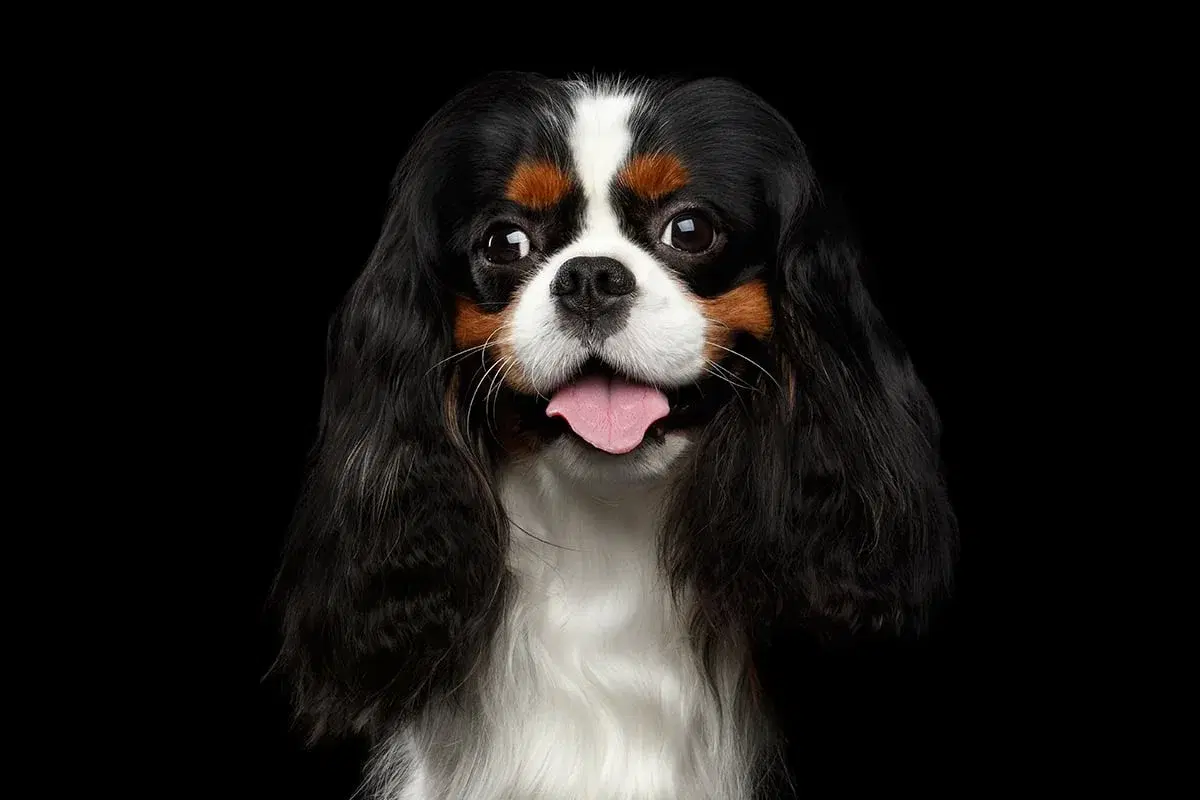Cavalier King Charles Spaniel Characteristics
Attribute | Description |
|---|---|
Life Expectancy | 9 – 13 years |
Adult Weight | 15 – 25 lbs. |
Adult Height | 12 – 15 in. |
Origin | United Kingdom |
Are you considering adding a Cavalier King Charles Spaniel to your family? These adorable and affectionate dogs have captured the hearts of many, but it's important to understand the financial commitment involved before bringing one home. This comprehensive guide will break down the costs associated with owning a Cavalier King Charles Spaniel, from the initial purchase price to ongoing care expenses.
How Much Does a Cavalier King Charles Cost?
The initial cost of a Cavalier King Charles Spaniel puppy can vary significantly depending on the factors mentioned above. Here's a general range to expect:
Source | Cost Range | Notes |
|---|---|---|
Reputable Breeder | $2,000 – $3,500+ | Based on breeder reputation and lineage |
Show-Quality Puppy | $4,500+ | High-quality pedigree for show or breeding |
Rescue or Shelter | $100 – $300 | Adoption fees vary by organization |
The price for a Cavalier King can also vary depending on where in the U.S. you're located. Here are price estimates for a Cavalier King in each US region:
Northeast: $1,500 - $3,500
South: $1,300 - $3,000
Midwest: $1,500 - $3,500
West: $1,500 - $3,500
Northwest: $1,400 - $3,200
Rocky Mountains: $1,200 - $2900

Why Are Cavalier King Charles Spaniels So Expensive?
Cavalier King Charles Spaniels are purebred dogs with a rich history and desirable traits. Several factors contribute to their higher price tag:
Breed Popularity: Cavaliers have become increasingly popular, leading to higher demand and subsequently, higher prices.
Breeder Reputation: Reputable breeders who prioritize health, temperament, and breed standards often charge more for their puppies.
Pedigree: Cavaliers with champion bloodlines or exceptional lineage can command a premium price.
Health Clearances: Responsible breeders invest in health testing for genetic conditions common in the breed, which adds to the cost of breeding and raising healthy puppies.
Coat Color: Certain coat colors, like Blenheim (chestnut and white) or Tricolor (black, white, and tan), might be more sought after and therefore more expensive.
Cost of Ownership for a Cavalier King Charles Spaniel
Beyond the initial purchase price, it's important to budget for the ongoing costs of owning a Cavalier. These include:
Monthly Expenses
Expense Category | Cost Range | Notes |
|---|---|---|
Food | $50 – $60 per month | High-quality dog food |
Professional Grooming | $50 – $80 per month | Includes grooming supplies or professional services |
Routine Veterinary Care | $100 – $300 per year | Covers check-ups, vaccinations, and preventive medications |
Medical Costs
Cavalier King Charles Spaniels are prone to certain health conditions, such as mitral valve disease, syringomyelia, and eye problems. These conditions can require costly treatments and ongoing care, ranging from $400 to $7,000+.
Additional Expenses
Expense Category | Cost Range | Notes |
|---|---|---|
Initial Supplies | $400 – $500 | For items like bed, crate, leash, collar, toys, and bowls |
Training Classes | Varies | Costs depend on the trainer and type of training |
Pet Insurance | $52 on average* | Helps offset unexpected veterinary costs |

Are Cavalier King Charles Spaniels Worth It?
Despite the initial investment, many pet parents with Cavalier Kinds find that the joy and companionship these dogs bring are priceless. Here's why Cavalier Kings are worth considering:
Temperament: Cavaliers are known for their sweet, gentle, and affectionate nature. They are adaptable and get along well with children and other pets, making them excellent family dogs.
Trainability: They are intelligent and eager to please, making them relatively easy to train using positive reinforcement methods.
Companionship: Cavaliers thrive on human interaction and love to be involved in family activities. They make loyal and devoted companions.
Cavalier King Charles Pros and Cons
Pros
- Great for Families & Seniors
- Good with Other Pets
- Adaptable to Different Living Situations
Cons
- Prone to Health Issues
- Moderate Shedding & Grooming Needs
- Shorter Lifespan Compared to Other Small Breeds
Frequently Asked Questions
What factors most influence the cost of a King Charles Spaniel? The cost of a King Charles Spaniel is primarily influenced by the breeder's reputation, the puppy's pedigree and health clearances of the parents, and regional demand.
Are show-quality King Charles Spaniels significantly more expensive? Yes, show-quality King Charles Spaniels are significantly more expensive, often costing thousands more than pet-quality puppies due to their superior lineage, adherence to breed standards, and potential for success in competitions.
Why are Cavalier King Charles Spaniels so expensive? Cavalier King Charles Spaniels are expensive due to the significant investment reputable breeders make in health testing to mitigate common breed-specific health issues, the meticulous care involved in raising healthy puppies, and the high demand for this charming breed.
What are the disadvantages of having a Cavalier King Charles Spaniel? Cavalier King Charles Spaniels are affectionate and gentle but can be prone to health issues like heart disease, ear infections, and hip problems. They also require regular grooming and may struggle with separation anxiety if left alone for long periods.
Expert Insights From Spot
According to Spot's internal data, the claims most often submitted for Cavalier King Charles Spaniels are preventative care claims for heartworm and flea medications, fecal worm screens, and heartworm tests, as well as claims for special diets, foods, or supplements. Spot has received over 688 claims from pet parents of Cavalier King Charles Spaniels for heartworm and flea medications, 442 claims for fecal worm screens, 313 claims for heartworm tests, and 283 claims for special diets, foods, or supplements. The most expensive claims were for prescription foods, with an average cost of $500.

More About Spot Pet Insurance
Pet insurance can help provide financial assistance for covered veterinary care in case of unexpected accidents, illnesses, or injuries. Our plans can help pet parents manage the eligible costs of covered veterinary care and help ensure that their pets can receive the best treatment possible. Here are some ways that Spot pet insurance plans can help:
Covers Unexpected Veterinary Costs: Spot pet insurance plans help cover the eligible costs of unexpected veterinary treatments, such as emergency surgeries, X-rays, and prescription medications for covered conditions.
Customizable Plans: Choose your annual limit, reimbursement rate, and deductible from a range of options, and create the plan that will fit the needs of your pet and your budget.
Peace of Mind: With Spot pet insurance plans, pet parents can know that they can provide the best care for their pet with less worry about the cost.
To learn more about Spot Plans or to get a free quote, click here.
Key Takeaway
Owning a Cavalier King Charles Spaniel can be a rewarding experience, but it's essential to be prepared for the financial commitment involved. By understanding the factors that influence the initial price and budgeting for ongoing care costs, you can ensure that your Cavalier receives the love and care they deserve.
If you're looking for a loving, affectionate, and adaptable companion, a Cavalier King Charles Spaniel might be the perfect fit for your family.

Mostly a tech person, always a pet person. I am dedicated to improving the lives of pets and their humans with technology. Off-duty, I enjoy writing about the misbehaving of computer programs and my two Aussiedoodles, Calvin and Hobbes.
“Cavalier King Charles Puppies for Sale in Tacoma, Washington.” Cavalier King Charles Breeder | Maple Grove Cavaliers | Ohio, 2024, www.cavaliersatmaplegrove.com/cavalierkingcharles/availablepuppies/tacoma/washington.
“World Class Cavaliers.” World Class Cavalier, 2023, www.worldclasscavaliers.com/?lightbox=dataItem-m5t64n0e3.
“AKC Andy, Cavalier King Charles Spaniel Raised in Albany, in | Good Dog.” Gooddog.com, Good Dog, 2025, www.gooddog.com/puppy/2545183.
“Juliet, Cavalier King Charles Spaniel Raised in Jackson, OH | Good Dog.” Gooddog.com, Good Dog, 2025, www.gooddog.com/puppy/2553564.
Zyra Capalac. “Cost of a Cavalier King Charles Spaniel Puppy by US Region [2024].” IHeartDogs.com, 29 Apr. 2024, iheartdogs.com/cost-of-a-cavalier-king-charles-spaniel-puppy-by-us-region/?utm_source=chatgpt.com.
*Based on 2024 - 2025 Spot Pet Insurance Services, LLC. Claims data












